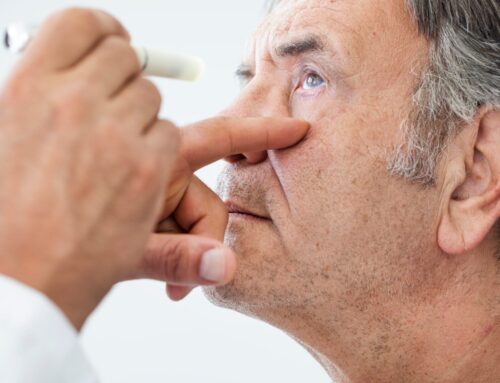
The Do’s And Don’ts After Cataract Surgery
Cataracts are quite a common vision problem in England, with over 330,000 cases treated every year. Although cataracts are usually not painful, they do tend to progress quickly and lead to vision loss. Fortunately, the technology used in laser eye surgery has advanced rapidly over the last decade, making cataract surgery a highly effective and safe procedure. The success rate of cataract surgery is quite high and there is no chance for a relapse in the eye that has undergone the procedure.
If you are set to undergo cataract surgery, it’s natural to want to make sure your post-op recovery goes well, helping you avoid complications. Although you will be making several follow up appointments with your cataract surgeon so he can monitor the progress of your recovery, you will also want to follow these steps to ensure your eye is given every opportunity to heal properly:
Refrain from Touching Your Eyes
Some patients may feel slight irritation in the treated eye once the numbing eye drops wear off. If you experience this, do your best to avoid touching your eyes in any way. Even the slightest pressure may damage the corneal flap. If this happens, another procedure will be necessary to correct the issue. Your surgeon may prescribe eye drops to help with dryness and/or irritation. Use that instead of rubbing your eyes.
Avoid Heavy Lifting
It is imperative that you get as much rest as you possibly can during the first few days after cataract surgery. Keep your activities light and refrain from lifting heavy objects. This is because the force you use to bend over and lift something heavy can place a significant amount of pressure on your eyes. As you can imagine, this can easily set back your recovery period or even lead to unnecessary damage.
Enjoy a Soak in the Tub
Taking a shower after your procedure is highly discouraged. Water droplets and water vapour can easily carry bacteria or viruses. If these get in your eye, there is a large risk of infection. If you are feeling particularly grimy or sweaty, it’s a much better idea to take a nice long soak in your bathtub instead of taking a quick shower—just take care not to submerge your head underwater.
Keep the Protective Shield on During Sleep
Your surgeon will provide you with a protective shield to wear over the affected eye after cataracts surgery. You are generally free to remove this protective shield a few hours after your procedure. However, you are encouraged to wear the protective shield before your turn in for bed, especially if you prefer to sleep on your side or on your stomach. The shield will help protect your eyes when you unconsciously touch your face during sleep.
Sources:
Cataract surgery, nhs.uk
Age-related cataracts, nhs.uk

About the expert
Mr Hamada | Consultant Ophthalmologist and Corneal Surgeon
MD, MSc, DO (hons), FRCSEd, FRCOphth I am Samer, founder and consultant ophthalmic surgeon with over 20 years’ experience in ophthalmology. I am a world-renowned specialist in cornea, cataract and refractive surgery. I’m not only a leading surgeon but also the only dual fellowship trained in corneal diseases in children from reputable institutions in the UK. At Eye Clinic London I work closely with other consultant ophthalmologists, optometrists and orthoptists to achieve the best outcomes for our patients. Our main aim is to make sure our patients get the safest and best treatments available to them. We put your safety before anything else so you can rest assured that if you choose us you will be in the best and safest hands.



